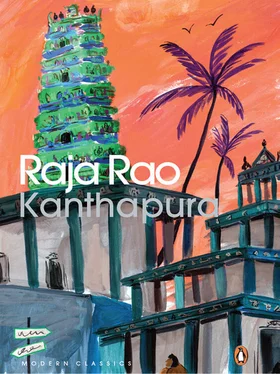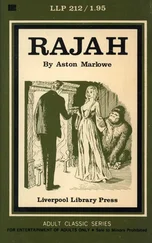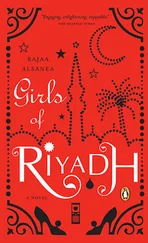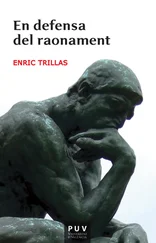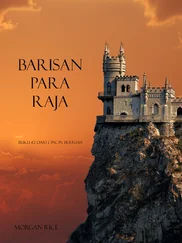Raja Rao - Kanthapura
Здесь есть возможность читать онлайн «Raja Rao - Kanthapura» весь текст электронной книги совершенно бесплатно (целиком полную версию без сокращений). В некоторых случаях можно слушать аудио, скачать через торрент в формате fb2 и присутствует краткое содержание. Год выпуска: 2014, Издательство: Penguin, Жанр: Классическая проза, на английском языке. Описание произведения, (предисловие) а так же отзывы посетителей доступны на портале библиотеки ЛибКат.
- Название:Kanthapura
- Автор:
- Издательство:Penguin
- Жанр:
- Год:2014
- ISBN:нет данных
- Рейтинг книги:3 / 5. Голосов: 1
-
Избранное:Добавить в избранное
- Отзывы:
-
Ваша оценка:
- 60
- 1
- 2
- 3
- 4
- 5
Kanthapura: краткое содержание, описание и аннотация
Предлагаем к чтению аннотацию, описание, краткое содержание или предисловие (зависит от того, что написал сам автор книги «Kanthapura»). Если вы не нашли необходимую информацию о книге — напишите в комментариях, мы постараемся отыскать её.
Kanthapura — читать онлайн бесплатно полную книгу (весь текст) целиком
Ниже представлен текст книги, разбитый по страницам. Система сохранения места последней прочитанной страницы, позволяет с удобством читать онлайн бесплатно книгу «Kanthapura», без необходимости каждый раз заново искать на чём Вы остановились. Поставьте закладку, и сможете в любой момент перейти на страницу, на которой закончили чтение.
Интервал:
Закладка:
How empty looked the Karwar road with Bhatta’s house burnt down!
Through the morning we ploughed back home.
That very morning we heard of Puttamma. She was in bed and ill and wailing. She had fits and fears and tearing angers. She asked for her child and pressed it to her heart and threw it over the bed, saying, ‘I am not your mother, the earth is your mother, your father is your father — I have sinned.’ The father, poor man, was ignorant of this, being in prison. But she said, ‘There he is, there, behind the sanctum door, and he will throw me into the well.’ But we said, ‘No, no, Puttamma, the gods will forgive you,’ but she broke into sobs, and her mother-in-law came and threw water over her face, and cooled her down. And when we went to the door and asked, ‘What happened, Nanjamma?’ Nanjamma told us of Pariah Siddayya who was in the lantana growth, and he had seen Puttamma and the policeman on her, and he had fallen upon the policeman and torn his moustache and banged and banged his head against a tree, and had brought Puttamma back from backyard to backyard, and men helped him in this backyard and that, for many were there that were hid in the lantana growth, and that was what we heard and saw, and that was how, when night came, rice and pickles and pancakes went up into the lantana growths. And when the beds were laid and the eyelids wanted to shut, we said, ‘Let them shut,’ for we knew our men were not far and their eyelids did not shut.
18
Three days later, when we were just beginning to say Ram-Ram after the rice had been thrown back into the rice granary, the cradle hung back to the roof, and the cauldron put back on the bath fire, and the gods put back in their sanctum, and all the houses washed and swept and adorned and sanctified, and when one by one our men were slipping in and then hurrying back to their jungle retreats, what should we see on that Saturday — for it was a Saturday — but one, two, three cars going up the Bebbur mound, one, two, three crawling cars going up the Bebbur mound like a marriage procession, and we all said, ‘Why, whose marriage now, when we are beating our mouths and crying?’ And we saw men in European clothes get down one by one under the dizzy sun, and soldier after soldier would go towards them and stand at a distance and salute them, and then the sahib-looking people went down the mound and by this paddy field and that, and they would lift this hand and point that way and lift that hand and point this way. Then more horns hooted from the Kenchamma hill, and this time they were open cars, open cars like those of the Skeffington Coffee Estate, and in them were Pariah-looking people, and we said, ‘They, too, bring their coolies.’ But something in us said, ‘Now things are going wrong,’ and Rachanna’s wife rushed to Madamma and Madamma went to see Seethamma and Vedamma, and Vedamma and Seethamma said, ‘Come, we’ll go and see Ratna, for she is our chief now.’
Then suddenly there was a drumbeat and we all rushed behind our doors and the drummer stood at the temple square with policemen on the left and policemen on the right, and he said something about the supreme Government and the no-taxer and the rebels, and then we heard the name of this field and that, and we put our ears against the door and we heard of Rangamma’s coconut field and Satanna’s triangular field and Pandit Venkateshia’s tank field and Bebbur field, and Seetharamu’s plantation field, and then, when he came to Rangè Gowda’s big field, we said, ‘Even the big field,’ and we knew there was nothing more to do; and we saw sand and water and empty stomachs, and suddenly we knew why these men had come in their cars, and why the cars were followed by open cars, and we all had tears in our eyes. And we rushed down the backyards and jumped over the hedges, and we met Satamma who was standing by her well, her bundle and children beside her; and she said the drummer was saying the village would be sacked again, and she said she had seen enough and she would go away to the town, and she said she had done nothing and she was not a Gandhi person, and it was all this Moorthy, this Moorthy who had brought all this misery upon us. And we asked, ‘Where will you go now? The policemen are not your uncle’s sons, are they? Come, Satamma, come, we will go to Ratna; for Ratna is our chief now and she will lead us out of it.’ But Satamma says, ‘What, to that bangled widow? She will lead us all to prostitution, and I am not going to have my daughters violated,’ and she said this and that and then she said, ‘All right, I’ll come,’ for she knew there were barricades and policemen at every footpath and cattle path. So we hurried this way and that to Sami’s house where Ratna now lived (for Rangamma’s house was under lock and seal), and we knock at the door and somebody comes and says, ‘Who is there?’ and I say, ‘The goat has two teats at the neck and two at the stomach and the stomach teats are we, Vandè Mataram,’ and they know it is us, and they open the door, and when we enter we find Nanjamma’s daughter, Seethu, and Post-office-house Lakshmi and Pandit Venkateshia’s daughter, Papamma, and Sata and Veta and Chandramma, and Rachanna’s wife and Madanna’s wife and many a Pariah woman, and Bangle-seller Ningamma is there too, and they are all looking at the hall door behind which somebody is surely speaking. And we all turn towards them and ask, ‘Who?’ and they whisper back, ‘Why, they !’—’Who are they ?’—Why, the boys.’—’What boys? Moorthy?’—’No no, the Mahatma’s boys,’ and then like a flash came the idea. Yes, Moorthy had told us, hadn’t he? The city boys would come to our relief. And we all said, ‘Well, there are all these city people to help us,’ and we felt our hearts beat lighter, and when we heard the drummer beat the drum we felt nothing sinister could happen to us, now these boys were there, and they would win us back our harvests.
And more and more women joined us, and children followed them, and old men followed the children, and there was a close silence, and everybody sat looking at the tight hall door, when suddenly it opened, and there was Ratna, and she said something to Seethu and Seethu said something to her neighbour and the neighbour said something to us, and we all gathered our sari-fringes and we waited, and the door opened again, and one of the boys came out, and with him was Pariah Madanna, and we said, ‘So, he’s back, hè?’ and we looked at each other and we looked at Madanna’s wife and Madanna’s wife smiled back at us knowingly, and we said, ‘So, he, too, was only in the jungles,’ and we said surely there are many others that have come back, and our stomachs heaved with joy. And more men came out of the hall, and there they were, Puttanna and Chandrayya and Seethanna and Borappa and Potter Sidda — and the city boys, they were like princes, fair and smiling and firm, and one of the Volunteers, the one with a square face and a shaking head, he stood by the threshold, and said, ‘Sisters, there is nothing to be frightened about. We knew the Government would auction the lands today, and our men are going to come from the city, hundreds and hundreds of men are going to come from the city, for we have decided to hold a Satyanarayana Puja, and it will be held in this house, and our men will escape from all the policemen the Government can send and all the soldiers the Government can send, and yet men will come from the city, and they will come for the Satyanarayana Puja, and no land will ever be sold, for the Government is afraid of us,’ and Nanjamma says, ‘No, no.’ But the Volunteer goes on, ‘Yes, sister, yes, the Government is afraid of us, for in Karwar the courts are closed and the banks closed and the collector never goes out, and there are policemen at his door and at his gate and beneath his bedroom window, and every white man in Karwar has a policeman beside him, and every white man in Siddapur and Sholapur and Matgi and Malur has a policeman beside him, and it is the same from Kailas to Kanyakumari and from Karachi to Kachar, and shops are closed and bonfires lit, and khadi is the only thing that is sold, while processions and songs and flags go through the streets, picketings and prabhat pheris, and the police will beat and the soldiers open fire, and millions and millions of our brothers and sisters be thrown into prison, and yet go and ask them, who is our King? They will say, “Congress, Congress, Congress and the Mahatma,” and hand in hand they go, shouting, “Victory, victory to the Mahatma.” Brothels are picketed and toddy booths and opium booths and courts are set up and men tried and condemned, and money set in circulation, the money of the Mahatma, and the salt of the sea sold, and the money sent to whom? To the Congress; and it is the same by the Ganges and the Jumna and the Godaveri, by Indus and by Kaveri, in Agra and Ankola, Lucknow and Maunpuri, in Madras, Patna and Lahore, in Calcutta, Peshawar and Puri, in Poona and in Benares — everywhere; and millions and millions of our brothers and sisters have gone to prison, and when the father comes back, the son is taken, and when the daughter is arrested, the mother comes out of prison, and yet there is but one law our people will obey, it is the law of the Congress. Listen, the Government is afraid of us. There is a big city in the north called Peshawar, and there the Government has always thousands and thousands of military men, and our brothers, the Mohammedans, one and all have conquered the city, and no white man will ever come into it. And they have conquered, sisters, without a gunshot, for all are Satyagrahis and disciples of the Mahatma. They bared their breasts and marched towards the machine guns, ten thousand in all, and bullets went through them, and a hundred and twenty-five were shot through and through, and yet they went up and conquered the city. And when our soldiers were sent to shoot them, they would not shoot them. For after all, sisters, these soldiers, too, are Indians, and men like us, and they, too, have wives and children and stomachs to fill as we.’
Читать дальшеИнтервал:
Закладка:
Похожие книги на «Kanthapura»
Представляем Вашему вниманию похожие книги на «Kanthapura» списком для выбора. Мы отобрали схожую по названию и смыслу литературу в надежде предоставить читателям больше вариантов отыскать новые, интересные, ещё непрочитанные произведения.
Обсуждение, отзывы о книге «Kanthapura» и просто собственные мнения читателей. Оставьте ваши комментарии, напишите, что Вы думаете о произведении, его смысле или главных героях. Укажите что конкретно понравилось, а что нет, и почему Вы так считаете.
